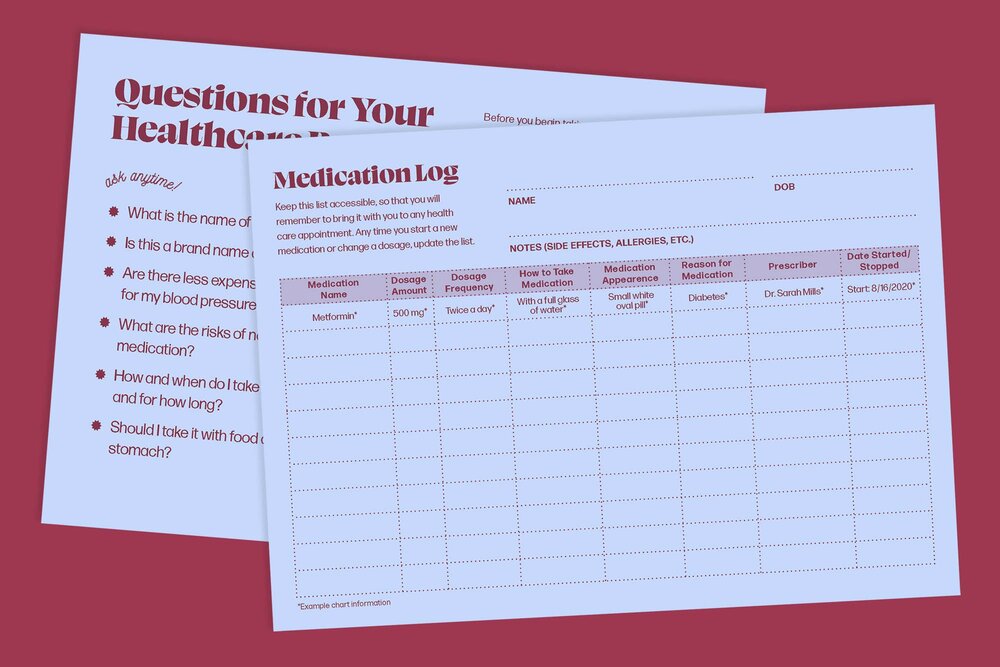How to Advocate for Yourself at the Doctor
SPECIAL ISSUE: HIGH BLOOD PRESSURE
WORDS: Betty Fermin + Emily Martin
ILLUSTRATION: DeAndra Hodge
Speaking up for yourself in a doctor’s office can be difficult and scary. When you find out that you have high blood pressure, you might feel confused about how to proceed. There is a lot of information out there, so it’s important to know how to advocate for yourself, especially when given advice that requires you to change your routines.
Doctors are there to help you and give you the information you need. They also have busy schedules and are trying to help as many people as possible. That means they have limited time with you, so there’s a lot they won’t know about your specific situation, needs, and lifestyle. This leaves you as your own best advocate. When you speak to any doctor, it’s important to know what questions to ask in order to get the help you need.
We know that racial bias, discriminatory assumptions, and structural barriers to health care may impact the treatment you receive. So do your research. Do not be afraid to ask your doctor questions. Be clear and direct about your concerns and speak up if they aren’t being addressed.
Here are some steps you can take to advocate for yourself when talking to your doctor about hypertension/high blood pressure:
1. Set the tone from the beginning of your visit.
Let the doctor know that you have some questions prepared and want to go over them. If you let doctors know this at the start of your exam, then they know what you’re looking for and how to address your concerns throughout the visit.
2. Know what questions to ask.
What are my blood pressure readings, and are these numbers typical? Find more information on blood pressure readings here.
Where do my numbers fall? Is my blood pressure high, normal, or low?
What are my treatment options?
Do you suggest medication? If so, what are the possible side effects?
What are the alternatives to medication?
3. Understand the answers to your questions.
You are entitled to a translator or ASL interpreter if you need one. Let your provider know what you need when you schedule your appointment.
Feel free to ask your doctor to rephrase something or to use plain language when explaining something to you. There is no shame in not being familiar with complex medical terms!
You don’t have to just accept the care that is given. Remember, you have the right to informed consent and refusal. Any time a health care provider wants to perform a procedure or treat you, even something as simple as putting in an IV line, they have an obligation to explain the procedure to you, the reason it is being suggested, and the associated benefits and risks. Then they must wait for your decision before continuing with the procedure.
To show the doctor you are listening to them, repeat back what they said or ask clarifying questions. More importantly, say “I don't agree,” if you don’t. Even if the only reason you don't agree is because it makes you uncomfortable, that’s still valid. This is about your safety and comfort, so you should not give consent until you get the answers or information you need. Your voice in your own care is important.




